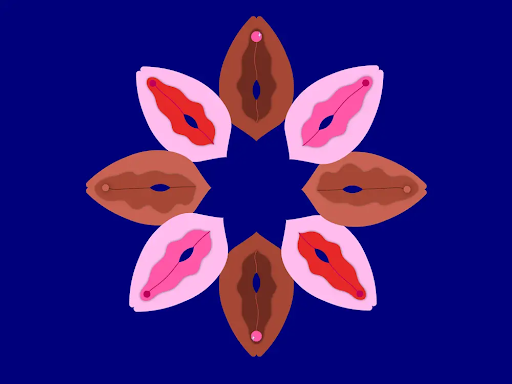Neovaginas: Here’s What You Should Know
Let’s start with the basics, shall we? A “neovagina” is a vagina that is created through surgical procedures, as opposed to a “natal vagina” which a person is born with. Neovaginas are often the result of vaginoplasty (a form of plastic surgery performed to create a vagina). This procedure is usually opted by people who were either born without a vagina or have inadequate depth. For example – trans women/trans-feminine people, intersex persons, or an AFAB (assigned female at birth) individual with MRKH syndrome.
The practice of creating neovaginas has existed for nearly a century and continues to evolve. The first recorded procedure occurred in 1931 in Germany and today, thousands of such surgeries are performed every year.

Neovaginal care: Dos and Don’ts
Needless to say, there are certain differences, but also similarities, between natal and neovaginas, especially when it comes to sexual health and pleasure. Here’s a list of dos and don’ts for each kind:
- Lubrication – Many neovaginas can’t self-lubricate as well as natal vaginas during sexual activity and therefore may need some extra lubing during penetrative intercourse. Nevertheless, lube is recommended for everyone. It is your ultimate bestie.
- Douching – Some neovaginas might require occasional douching due to the absence of the usual bacteria found in natal vaginas. This depends upon the type of skin graft used to form their lining during vaginoplasty. But if you have a natal vagina – you don’t need to douche. Ever.
- Gynaec visits – Due to the complications associated with vaginoplasty, neovagina-owners must follow up with their doctors who then perform exams of the vulva, perianal region, and the neovagina. For those with natal vaginas – an occasional trip to your gyno won’t hurt!
- STD testing – This one applies to all kinds of vaginas. Getting tested for sexually transmitted diseases/infections on a regular basis is super important!
- Vaginal odour, queefs, pubic hair, and hyperpigmentation are completely, totally, wholly, entirely normal and healthy for all types of vaginas.
(Please keep in mind that all vaginas are unique and need not always comply with the aforementioned pointers, particularly in the case of neovaginas.)

But Wait, There’s More
Despite being an integral part of gender affirmative healthcare, there is a shockingly low level of awareness about vaginoplasty among the masses and even the medical establishment, especially in India. Receiving correct professional advice in the case of neovaginas, and trans healthcare in general, is often an excruciating process owing to the lack of research and sensitization in this medical community. It can be hard for people with neovaginas to trust their gynaecologist.
As per a report by Funders for LGBTQ Issues, an NGO that tracks philanthropy and research for trans and LGBTQ+ communities, “Half of transgender people report having to teach their own medical providers about appropriate health care for transgender people.” This contributes to the systemic invisibility faced by trans and queer people and further worsens the state of their already vulnerable health condition.

Conclusion
Regardless of the kind of vagina you may possess, the bottom line is – both are beautiful, both are valid. Every vagina deserves love, care, and support – some a little more than others. There exists a massive divide when it comes to the products, services, and accurate information available for natal versus neovaginas and that needs to change. This can only happen through inclusion, representation, and constant push for trans visibility in the medical establishment. The beloved icon Aimee Gibbs from Sex Education said it best – Each vulva is unique and beautiful and deserves to be cherished.
P.S. – If you are unsure about the difference between “vagina” and “vulva”, check out this article.
Author


1 thought on “Neovaginas: Here’s What You Should Know”
Can postoperative transwomen use vaginal probiotics for vaginal pH balance?